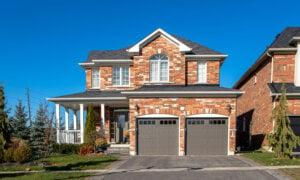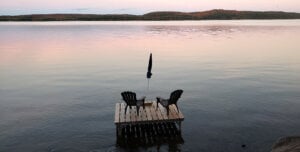Buyers venturing farther afield to find their dream home have brought some big-city real estate market dynamics with them. In formerly sleepy small towns, out-of-town buyers snapped up available properties, instigated unheard-of bidding wars and paid considerably more than list prices. Things came to a head in December 2021, when Canada’s housing inventory hit a record low of 1.6 months. Homes were selling almost as quickly as they were put on the market.
This is sounding alarm bells for policy makers, prompting governments and the Bank of Canada to take action to cool the real estate market and prevent the much-debated possibility of a “housing bubble.” Some provinces have taken aim at foreign buyers, while Ottawa has put a two-year ban on foreign speculation. The 2022 federal budget also outlined new tax credits and a new tax-sheltered savings plan for first-time buyers, designed to help more people break into the competitive Canadian real estate market.
Canada’s top three real estate markets
1—Greater Moncton, N.B.
Moncton is the largest urban centre in the province of New Brunswick, and the Greater Moncton Area—home to almost 145,000 residents—is made up of Moncton, Riverview and Dieppe. This picturesque city sits in the Petitcodiac River Valley and is known as the “hub” of the Maritime provinces, due to its central inland location and its history as a railway and land transportation hub. Moncton features a mix of English and French Acadian cultures, and it is known across the Maritimes for its outdoor adventures, lively culture and heritage festivals. With the largest retail centre in the region, it is also a local shopping destination.
Why we’re watching Greater Moncton
While Greater Moncton may boast the highest benchmark price in New Brunswick, home prices were still below the national average by around $425,000, as of December 2021.
Housing prices have climbed as the region has welcomed an influx of people from outside the province. In 2020, Statistics Canada reported the largest net increase in Ontarians moving to N.B. in 42 years. This trend of interprovincial migration continued into 2021, and in the fourth quarter of 2021, the number of people moving to the province was up 60% year-over-year. New Brunswick has also drawn a large number of people from outside the country. In the fourth quarter of 2021, international immigration jumped 112% over the same period one year before.
Newcomers are drawn by the abundant space, accessible nature and greater affordability, as well as New Brunswick’s reputation for friendly communities and its opportunities to buy larger properties with oceanfront views. Then there’s the fact that working from home has made commuting obsolete for some workers. All of this has helped increase the value of Greater Moncton’s residential benchmark price by over 98% in the past five years.
The unemployment rate in N.B. has steadily declined in the past 18 months, down from a peak of almost 12% in July 2020. In April 2022, it stood at around 7.5%, 2.3% above the national average. However, you’ll still find many opportunities in agriculture, construction, trade services, professional and scientific services, education, health care, information and cultural services, hospitality and food services, and public administration. Greater Moncton’s tourism sector, popular for its mix of outdoor adventures and urban experiences, is on the rebound from COVID-19 restrictions.
Future real estate outlook
Moncton’s housing market saw continued price increases into the early months of 2022. In the first quarter, the benchmark price in Moncton rose 7.9%, crossing the half-a-million-dollar mark in March 2022 across all home types. A buyer can snag an average condo in the Moncton area for just over $400,000. That’s after prices skyrocketed 58% in 12 months, but it’s still $220,000 below the national average, making this a very affordable option for first-time buyers.














Usually there’s a chart on these MoneySense rankings. There’s nothing here. There’s links to CSV/PDF/Excel files, but those are all empty.
Thanks for letting us know. We briefly experienced technical issues that prevented the tables from displaying properly. The issue has now been resolved.
A couple of things to keep in mind about Moncton, NB and New Brunswick in general. Prices of houses are low yes. But they have the poorest health care systems. The waiting list to get a family doctor is between 5 to 8 years and that was pre pandemic. After hour clinics suffering badly, with some having to go at reduced hours while at least 1 had to shut down. Wait times at hospitals to see a doctor I believe is about 20 hours. That’s just the medical system.